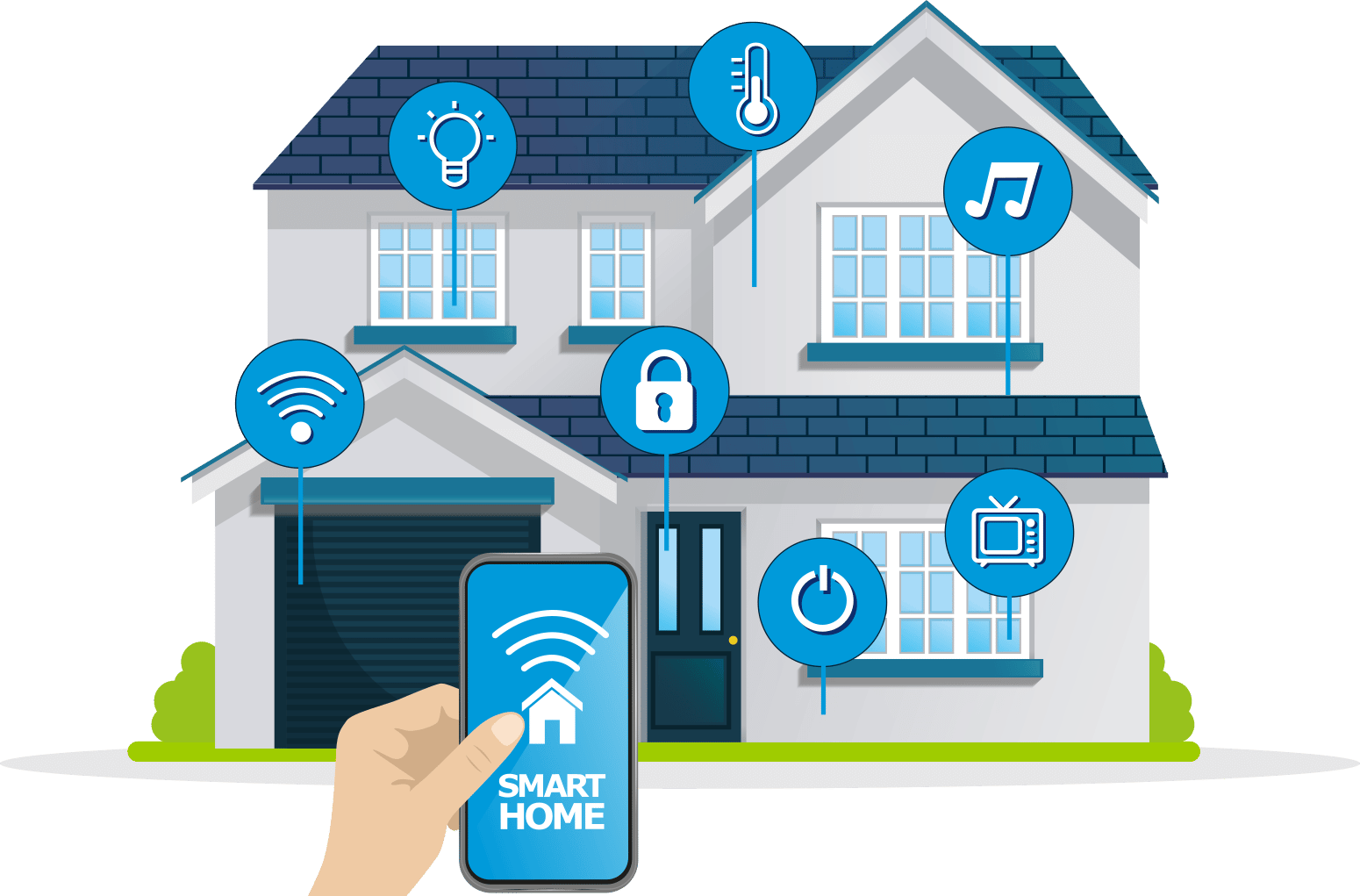Since the 60s we have seen huge leaps and bounds in human/technology harmonisation. We have seen assistant technology and home devices pop up here and there, but it wasn’t until the rise of smartphones and the launch of services like Apple’s Siri in the Naughties that we started to digitise our personal spaces.
Recently we have seen a colossal number of home devices hit the market due to the introduction of Alexa in 2014. This could probably be argued as the birth of the Smart Home phenomenon. These devices now fill every room and offer multiple functionalities. The only restriction, it seems, is our own imagination. Alexa has paved the way for many other AI entities, eradicating the trepidation we once had of machines ‘taking over. All this has been forgotten as we realise just how useful this tech can be. (https://voicebot.ai/2018/03/28/timeline-voice-assistant-smart-speaker-technology-1961-today/)
So, what is a Smart Home? A Smart Home is an amalgamation of devices; including lighting, smart security, voice speakers and digital thermostats. They all aim to make our lives easier, save us money, help us organise our lives and keep us secure. YouGov’s Smart Homes 2018 Report indicates that close to a quarter of Britons own a smart home device, with one in ten of these consumers having two or more.
Ever-increasing capabilities and the fact these devices can connect to the internet have encouraged more users to adopt them as another form of online purchasing. Services like an AmazonFresh and JustEat Takeaway have entered the scene as a result of the surge in speaker devices. It’s now possible to do your grocery shopping or order your favourite meal and have it delivered to your door using just your voice, without ever actually talking to another human being.
It’s inevitable that as technology is further ingrained in our everyday home life, retailers and hospitality companies are going to invest large amounts of money into optimising and streamlining the experience for users. With further advancements in the technology’s ability to understand more complex commands and respond to sensory stimuli, we can expect smart homes to capture even more of the online shopping market.
The idea our homes could become completely autonomous is probably not in the too distant future. The once futuristic musings of shows like The Jetsons which showed utopian, technology-dependent lifestyles might not be as farfetched as we once thought. Just imagine, you use your last carton of milk in the fridge during breakfast. Your fancy new Smart Fridge will automatically order you some more before you return home from work. The everyday trivial task is dealt with allowing you to get on with the more interesting part of your day.
With the digitisation of everything we own, these devices will track, monitor, and control even the smallest details of our everyday life. The data accrued from our habits, rituals and schedules will become incredibly valuable to retailers. With marketing companies already placing a high demand on consumer data. This relatively new, untapped behavioural information will make it easier for companies to understand the demands of the public. With the added benefit of brand loyalty due to the fact users would opt to repeat orders, companies can predict, respond and deliver their services much more efficiently.
With more companies seeing the value of smart homes as a substantial gateway to consumers. It will be interesting to see how our homes will further change. As the world continues to become more digital, it looks like ‘smart living’ will become the new normal.
 En
En
 De
De 


